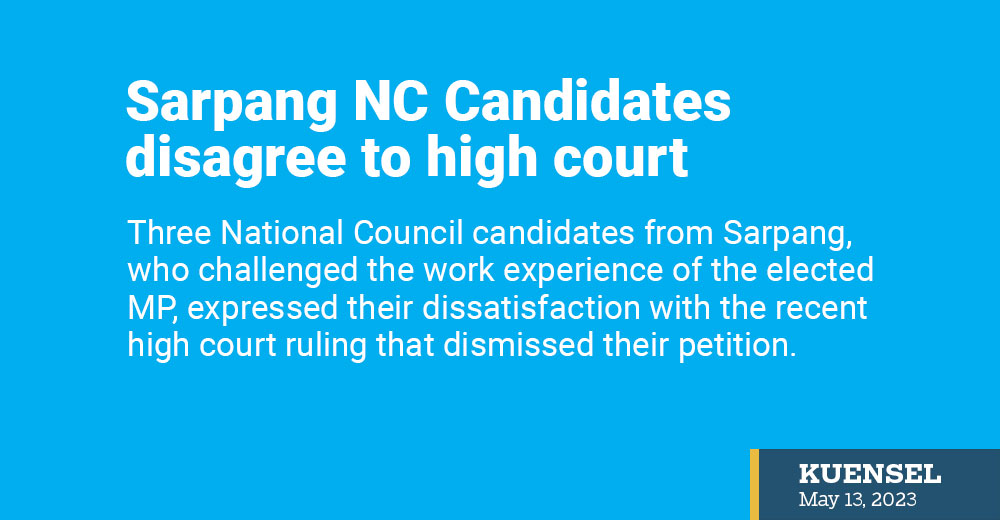Lhakpa Quendren | Gelephu
Three National Council candidates from Sarpang, who challenged the work experience of the elected MP, expressed their dissatisfaction with the recent high court ruling that dismissed their petition.
The plaintiffs had appealed to the High Court to investigate the work experience of Sarpang’s MP-elect, Pema Tashi, which the Election Commission had declined to disclose. However, on May 5, the High Court rejected their petition, citing a lack of substantial evidence to support their claims.
Despite the verdict, the plaintiffs maintain their dissatisfaction and are contemplating whether to further appeal the case to the Supreme Court. They will reach a decision on Sunday regarding their next course of action.
The court’s judgment emphasised that the plaintiffs should have initially appealed either to the Central Election Dispute Settlement Body at the national level or the Dzongkhag Election Dispute Settlement Body at the district level.
Disagreeing to the court’s decision, the plaintiffs argued that it contradicted section 467 of the Elections Act of the Kingdom of Bhutan, 2008, which states that “the authority to try an election petition related to an election to the National Assembly or National Council shall be the High Court of Bhutan.”
The plaintiffs expressed their confusion at the court’s criticism of the timing of their petition, as they only became aware of the issue three days after the elections. They questioned the purpose of providing a 10-day petition period following the elections.
In response, the judgment clarified that there was no substantial matter to be reviewed by the court and stressed the importance of respecting the will of the people.
While acknowledging and respecting the people’s decision, the plaintiffs raised concerns about the responsibility owed to the more than 14,000 voters who supported the other eight candidates despite their loss in the elections.
Refuting claims that they accused the NC-elect of wrongdoing, the plaintiffs clarified that their primary objective was to ensure transparency and adherence to clean rules and regulations.
The plaintiffs highlighted a discrepancy in the claimed years of work experience presented by the NC-elect, asserting that the actual experience amounted to only eight years.
The judgment also noted that the appeal letter failed to fulfill the requirements of an election petition as mandated by Section 479 of the Election Act of the Kingdom of Bhutan, 2008.


